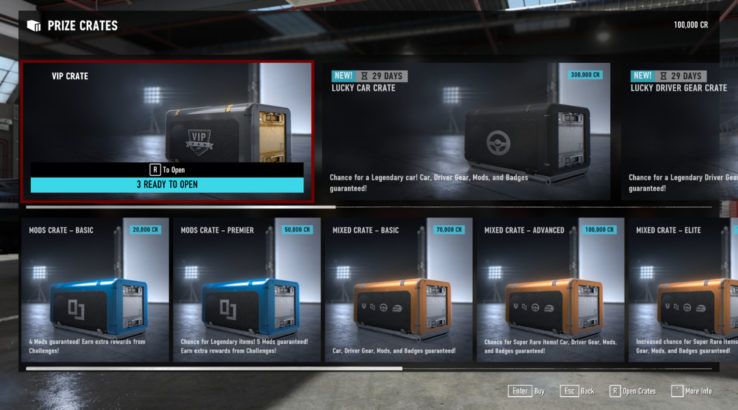One of the major stories in the games industry recently has been loot boxes. Games such as Star Wars Battlefront 2 and Forza Motorsport 7 have come under fire for their loot boxes and microtransactions, as players say that the games unfairly force them to grind or are even pay to win.
However, games industry tracker NPD says that the loot box controversy is not affecting video game sales, in the United States at least. Analyst Mat Piscatella says that game sales do not seem to be affected either way - and that games with loot boxes do not seem to be selling more or fewer copies as a direct result of the loot box debate. The analyst points to recent sales charts, noting that the loot box and microtransactions controversy "has not yet resulted in clear noticeable limitations of the sales potential of the games with [those mechanics]."
Many of the best-selling games "strive towards achieving player engagement and extending retention" and these are the ones with loot boxes and microtransactions. These are games such as Destiny 2, which is the best-selling game of the year so far despite fans voicing their frustration about cosmetic microtransactions and changes to the game's shader and mod system.
This also includes games like NBA 2K18. The sports simulation game also received backlash over its microtransactions, which did see 2K reduce the prices of some items in the game.
Though Piscatella does explain that "it could just be that the biggest games with the highest marketing budgets tend to have these mechanics, and that the games are selling well despite the presence of loot boxes in the games. " The NPD analyst also says that things are evolving "very quickly" and that "I'm sure we're going to learn much more over the next few months".
It's true that the conversation surrounding loot boxes and microtransactions is evolving quickly, in a way that could have serious ramifications for the industry. Although it appears that it is just a vocal minority voicing their dislike of loot boxes and microtransactions (or that minority is not voting with its wallets), the numbers could grow.
Moreover, loot boxes and microtransactions could lead to changes in how games are sold. For example, gamers in the UK are currently campaigning to get loot boxes classed as gambling and the UK government has weighed in on the situation, saying that it is monitoring the conversation. Reclassification of games or changes to the law could severely impact sales, especially those currently classified for younger audiences, shaking up the industry and the sales charts significantly.
Source: GamesIndustry.biz


